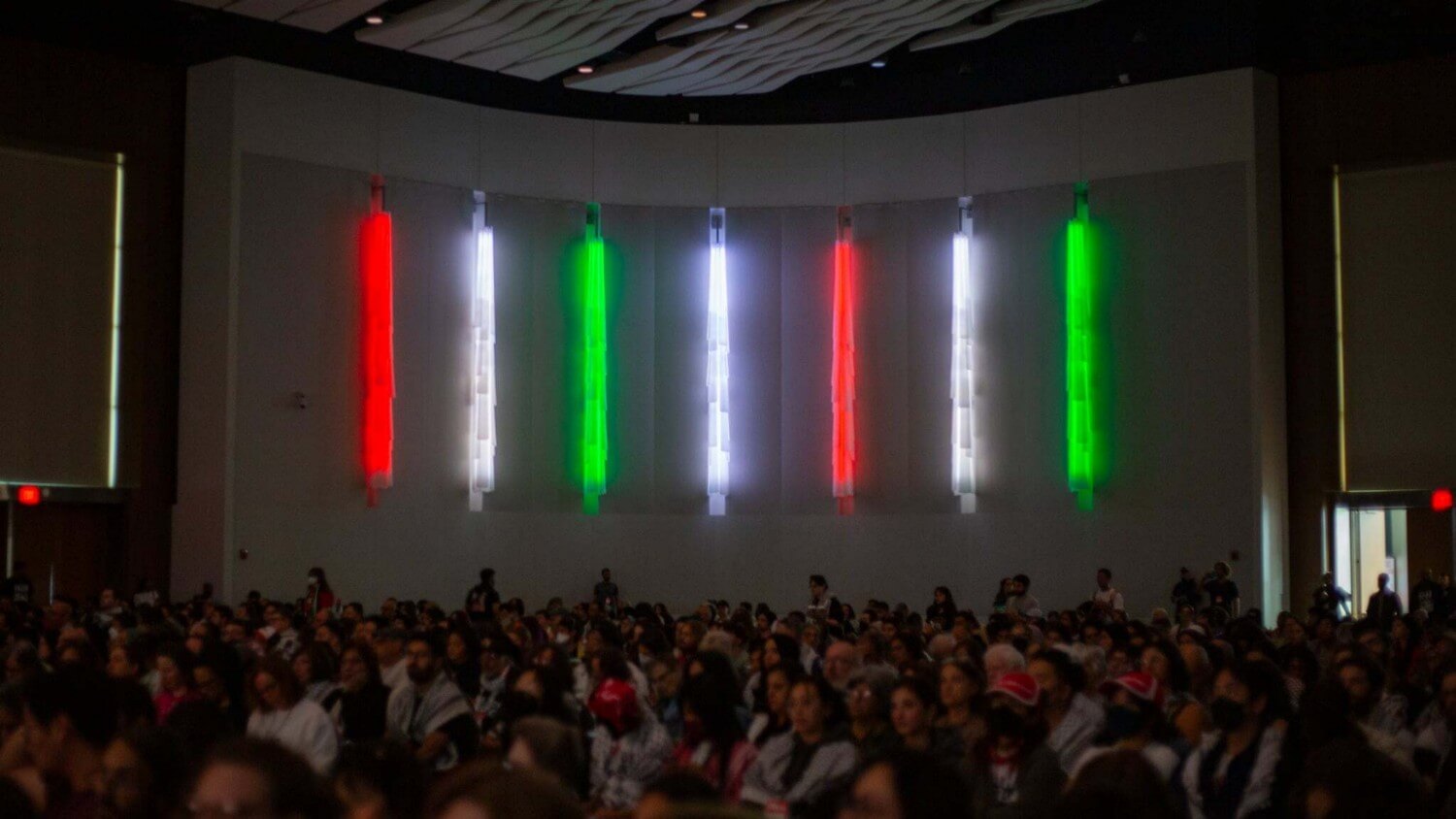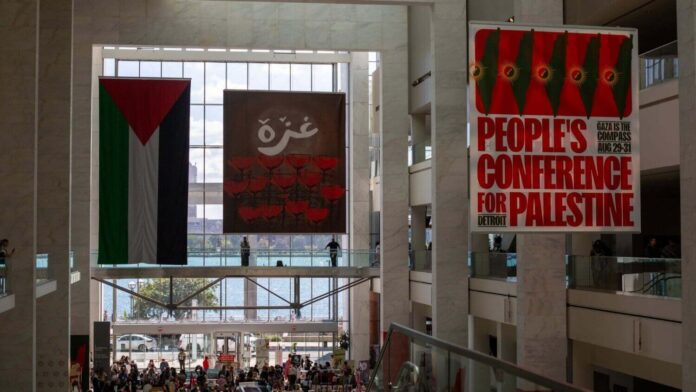Six Occidental students attended the People’s Conference for Palestine, an event organized by the Palestinian Youth Movement (PYM) and other Palestinian advocacy organizations, Aug. 29–31 in Detroit, MI. The conference featured a gathering of activists from across North America, all in support of the Palestinian Liberation Movement.
Attendee Evan Zeltzer (sophomore) said he was encouraged to go to the event because he wanted to surround himself with people of similar values and those who are engaged in the same struggle as him.
“The environment was electric,” Zeltzer said. “It was very exciting for a lot of people, especially for so many Palestinians, to be in community with each other at that time.”
Occidental Students for Justice in Palestine (Oxy SJP) spokesperson Tobias Lodish (junior) also attended the conference and said there were around 4,000 other attendees.
“I felt like I had to attend,” Lodish said. “Gaza and Palestine is the most pressing moral issue of our generation. It is the litmus test of our collective humanity. I didn’t want to miss out on an opportunity to hear directly from people who have been in Gaza during this ongoing genocide; to hear directly from people […] who have spent their lives studying Palestine and Israel.”
Lodish said a guiding theme throughout the conference was “Gaza is the Compass.”
“One thing that has stuck with me since attending is the necessity that we all have to center Gaza,” Lodish said. “I think the genocide of the Palestinian people is connected to everything that we do at this school.”
Lodish said at the event he was exposed to many new ideas, organizations and currents within the Palestinian Liberation Movement.
“It was a really emotional atmosphere, especially considering the escalating violence in Gaza and the forced starvation campaign that Israel has enacted over the last six months,” Lodish said. “Most of the events happened in the main conference hall, the Anas Al-Sharif hall. [Al-Sharif] was a journalist for Al-Jazeera who was targeted and murdered by Israel a couple of weeks ago, along with five other journalists in a targeted air strike. That really set the tone for the entire event, the tone being holding two things at once: the genocide and also the possibilities we have and the actions we can take now.”

Zeltzer said the conference hosted several cultural nights featuring Palestinian dabkeh and music. He said there was also a large market of vendors selling Palestinian merchandise.
“Looking around, there were thousands of people engaging in Palestinian culture all at the same time,” Zeltzer said. “[There were] so many people that [were] both Palestinian and non-Palestinian. Seeing the immense joy in that space was definitely something I’ll remember.”
According to Zeltzer, the conference also displayed a viewing exhibition called “Mapping Gaza.”
“There were two huge maps that the organizers of the event created. One of them was Gaza pre-Oct. 7, and one of them was Gaza post-Oct. 7,” Zeltzer said. “It was a 3D [topographic] map in which you can see the destruction that Israel has enacted upon the Palestinian people. All the buildings, parks […] and agricultural zones that have been destroyed […] you can also see what a small space Gazans have been forced into now.”
Christopher Sweat, co-founder of GrayStak Media, a media and technology platform that covers information warfare, mass protests, state violence and economic upheaval, said he was inspired to attend the event because he wanted to see for himself what the movement is about, not through media or hearsay. Sweat said that GrayStak has been covering protests as well as the social and political events that surround GrayStak since the March on the DNC 2024 in Chicago.
“[The conference] was very professional. [There was] low security and low law enforcement presence,” Sweat said. “[GreyStack] had nearly full access to cover the event. Everyone was kind, respectful and even appreciative of the coverage. There were tears, joy, celebration, solidarity, education and insights from the ground.”
Sweat said two of his favorite speakers at the conference were Rashida Tlaib and Hani Almadhoun.
“[Tlaib] was able to share her American identity alongside her Palestinian identity. She spoke to the soul of the audience,” Sweat said. “[Almadhoun] shared his experiences and some of the losses he has suffered in Gaza. [He founded] the Gaza Soup Kitchen which initially started as a community aid project … then grew into a multi-million dollar food program for Gaza.”
Sweat said there will likely be another People’s Conference for Palestine next year.
“It sounds like it is inspiring other events to take place in multiple cities throughout the country,” Sweat said.
Lodish said he feels that everyone has an obligation to learn about the Palestinian struggle for liberation and to support it in all the ways that they are able.
“I believe everybody should have equality, everybody should have access to food, water and their family and [everybody] should have free movement,” Lodish said. “There’s nothing more fulfilling than aligning my actions with my beliefs.”
Contact Josey Long at jlong2@oxy.edu
![]()































